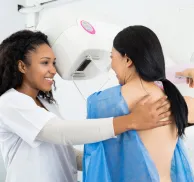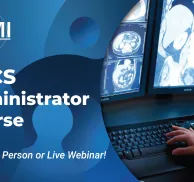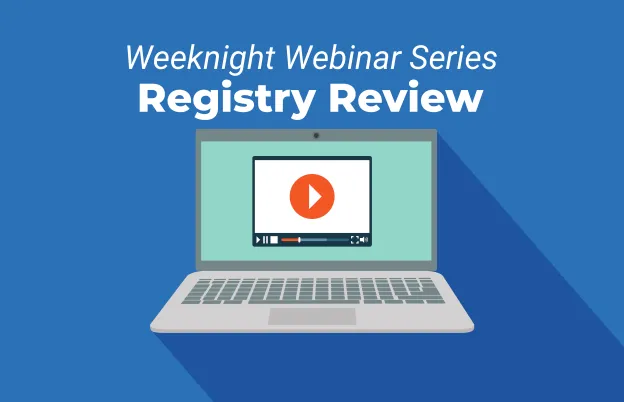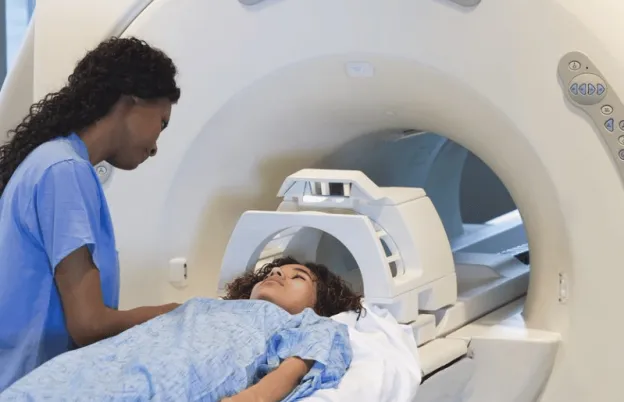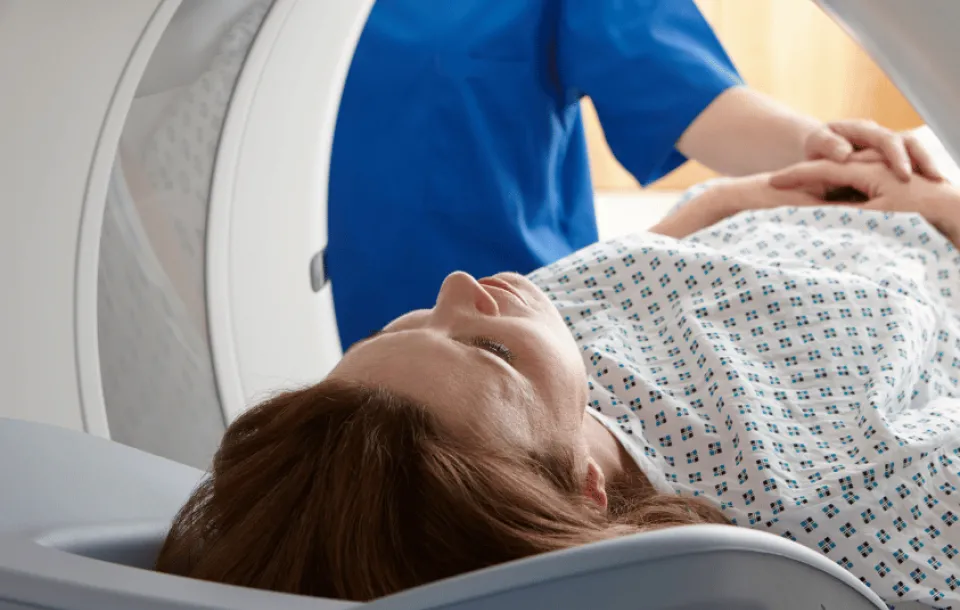
- Document2026 CT Training Course Flyer (447.11 KB)
CT Training Course for Technologists
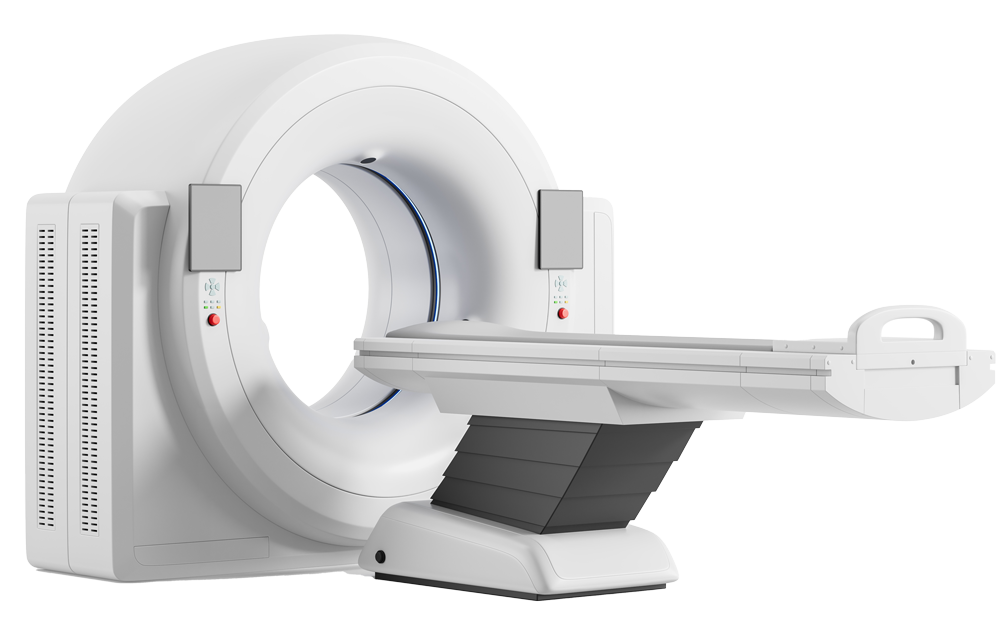
Earn CT Certification & Move Your Career Forward
96% of MTMI students pass the ARRT® CT® board exam!
This 5-day in-person, live webinar or online self-paced CT bootcamp course, combined with ScanLabCT™, completely redefines cross-training. It allows technologists to learn CT technology and become part of the evolution toward computerized digital imaging. This is an opportunity to improve your technical knowledge and prepare for the ARRT® CT Registry Examination to obtain CT tech certification.
If you want to increase your job opportunities and have a more satisfying work experience, this CT bootcamp course is for you!
To learn more about CT certification, download the ARRT® CT Certification Handbook.
Your Path to CT ARRT® Exam Success Starts Here
MTMI is with you every step of the way with quality CT education & CE credits.
- Digital CT Course Book – included at no extra charge, this comprehensive resource is a perfect supplement to your training
- Access ScanLabCT™ virtual scanning software – Labs that replicate clinical scans, creating real-world hands-on training without the risk to patients and accelerated skill building, critical thinking and retention for CT certification exam success
- ASRT-Approved CT Credits – Earn 40.75 hours of Category A credit & 16 hours of structured education required for certification/registration
- Clinical Placement Optional – Meets ARRT® clinical requirements for CT certification
- Gain a complete set of skills to start a rewarding career in CT – Build expertise in a high-demand modality that continues to make a significant impact on patient care
- Build a solid foundation in CT technology for future growth – Develop knowledge that opens doors to new opportunities and advancement in the medical imaging field
3 Formats: In-Person, Live Webinar & Online CT Training
MTMI offers 3 different learning formats to complete your CT Training: In-Person, Live Webinar, or Online/Self-Paced. You can choose the one that works best for your learning style and schedule.
Plus, all formats cover all essential computed tomography principles, certification exam prep, and techniques required for ARRT® CT certification.
Great for learners who thrive in a structured learning environment with interaction and enjoy a faster pace of learning
- Interact with the expert CT educators and peers
- Take advantage of real-time Q&A
- Get training done in just 5 days
- Access to ScanLabCT for 3 months
All of the wonderful benefits of in-person learning, but from the comfort of your home.
- No out-of-pocket flight or hotel costs
- Attend from any location
- Take advantage of real-time Q&A
- Access to ScanLabCT for 3 months
Great for self-motivated learners who are good at managing their schedules and can’t devote dedicated time to live instruction.
- Start CT training immediately
- Complete the CT course on your own schedule
- You have up to six months to complete the program
- 500+ registry-style post-test questions built into the course
- Access to ScanLabCT for 3 months
Gain Confidence with ScanLabCT Virtual CT Simulations
Practice CT Scanning in a Realistic, Risk-Free Virtual Environment
Step into the scanner room virtually with ScanLabCT, an innovative simulation tool built into our CT Cross-Training Course. Designed to mirror the complexities of clinical CT scanning, ScanLabCT lets you practice patient positioning, image acquisition, protocol selection, and image reconstruction — all within a safe, interactive, and immersive environment.
Benefits of ScanLabCT:
- Build confidence before clinicals
- Apply skills in real-world simulations
- Master image reconstruction & troubleshooting
- Reinforce knowledge with critical thinking exercises
- Continue practicing for 3 months post-course
- Included with all learning formats
ScanLabCT mirrors the challenges of daily CT practice — so you can tackle your clinicals feeling prepared, experienced, and confident.
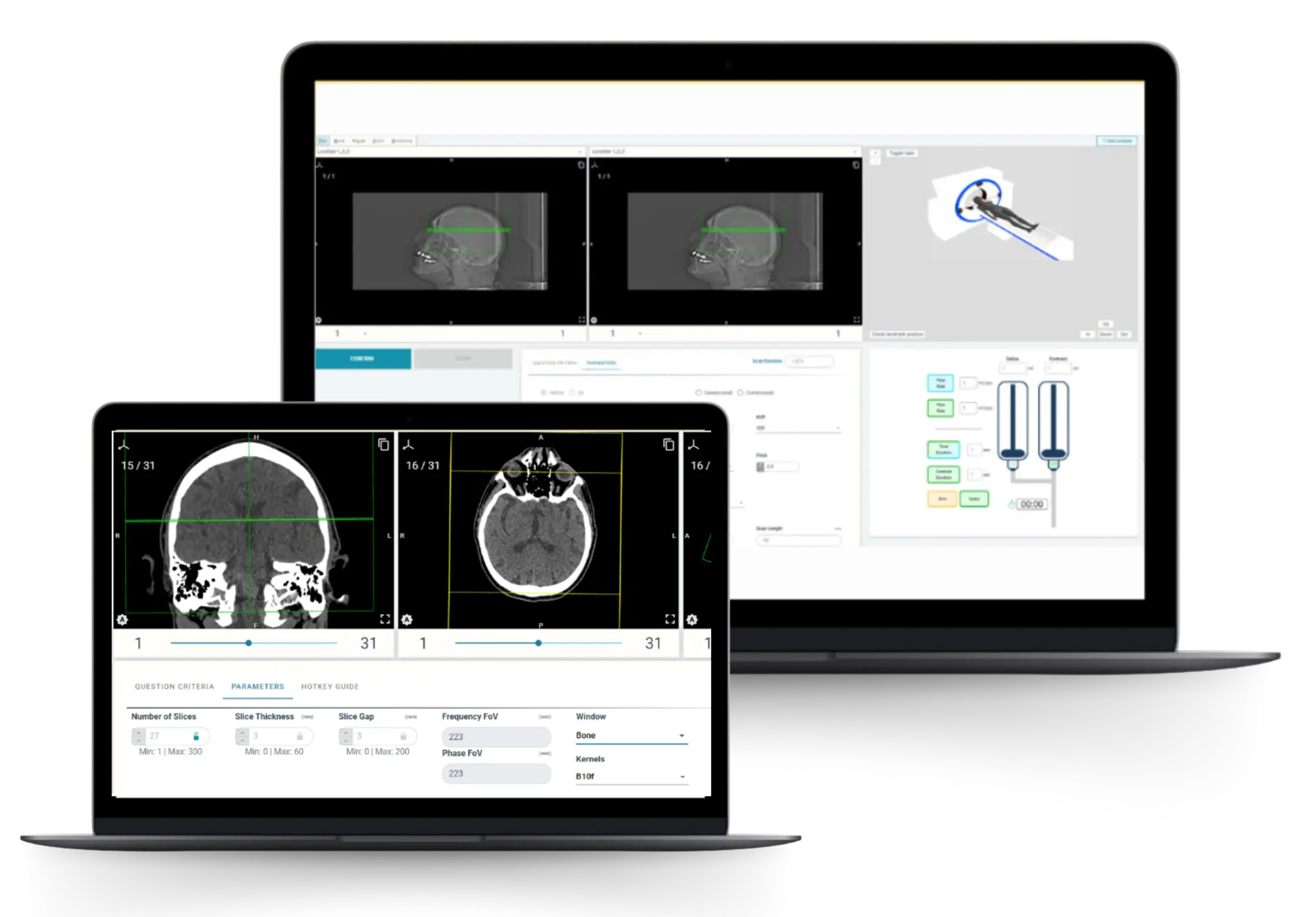
Do You Need to Meet ALL of the ARRT® Clinical Requirements?
MTMI has established an 8-week program where you can obtain all ARRT® clinical experience requirements needed to sit for the ARRT® CT board registry certification exam. In order to be eligible, attendees must complete MTMI's CT course. This is required by our partnering facilities.
Students are responsible for their own housing, travel, and food. Additionally, students are responsible for covering the costs of prerequisites, including immunizations, background checks, drug tests, licensure, and other required documentation.
Full payment for the 8-week program is due in advance before the clinical rotation begins. A $200 non-refundable deposit is required to secure your spot. If you cancel before your clinical rotation begins, you’ll receive a full refund minus the $200 deposit. Cancellations within the first 2 weeks of the rotation will be refunded at 40%, and no refunds will be issued after 2 weeks.
Please contact MTMI for more details at mtmieducation@mtmi.net or call 800-765-6864.
CT Training Course for Technologists Educational Objectives
At the completion of this accredited CT program, participants will be able to:
- Describe the basic principles and concepts of computed tomography
- Incorporate CT procedures and scanning techniques learned to best demonstrate anatomy and pathology
- Describe techniques in manipulating CT parameters to optimize image quality
- Recognize CT artifacts and describe techniques to minimize their occurrence
- Compare the advantages and disadvantages of various CT scanner configurations
- Review and understand radiation exposures in CT, how to measure and report CT dose, and dose reduction techniques
- Explain the basic functions of ScanLabCT software in order to perform simulated CT scans
Educational Resources/FAQ
CT technologists must be certified to perform CT scans. To obtain CT tech certification, you must complete a radiologic technologist program. After completing the education, the individual must pass a certification board exam, typically with the American Registry of Radiologic Technologists (ARRT®).
An ARRT® Registered Technologist may take the ARRT® CT certification exam after completing a continuing education CT program like this one with at least 16 hours of structured education, plus performing clinical examinations on real patients as part of the application for the CT tech certification exam. Read more about how to become a CT scan technologist in our full blog!
Figuring out the best way to become certified can be confusing for many students. It is a common myth that students need to complete a college certificate program to become a certified CT tech. This is not the case at all. Completing a college program or a course like the one we offer at MTMI does not automatically certify you to become a CT tech. No matter which type of program or course you choose, you will still need to pass the CT tech certification exam and meet the minimum required clinical hours.
If you are searching for online CT tech programs or efficient courses, we think you will like what MTMI offers. While every student has different needs and goals, we aim to offer an efficient, affordable, and comprehensive experience. College programs may have longer timelines for completion, higher costs, and additional course requirements that fall outside the scope of relevance for radiation safety and CT certificate preparation.
Plus, this course is approved by ASRT for continuing education credits and meets the ARRT® structured education requirements to sit for the CT tech certification exam, as long as your clinical experience requirements have also been met.
Prerequisites for this course are ARRT® or NMTCB registration or state licensure. Contact MTMI for details.
No, this course is appropriate for registered radiologic technologists with little or no experience in radiology or CT. The MTMI CT bootcamp course is designed for technologists who are new to computed tomography or looking to prepare for the ARRT® CT certification exam. The course provides a strong foundation in CT principles, equipment operation, image production, safety, and clinical procedures. It is suitable for technologists transitioning into CT from other modalities or those seeking a structured review. The curriculum is paced to support learners at all levels, making it an accessible starting point for those with little or no CT background.
The MTMI CT Training Course covers a wide range of CT procedures across key anatomical regions. Instruction includes thorax imaging such as routine chest scans (with and without contrast), airway evaluations, chest for pulmonary embolism, and low-dose lung screening. For abdominal and pelvic CT, the course addresses liver, pancreas, abdominal aorta, renal system, and general abdominal protocols, with scanning techniques demonstrated through ScanLabCT.
Additional topics include CT of the head, with emphasis on stroke types (ischemic, hemorrhagic, hypertensive), sinus anatomy, facial trauma, and brain scanning protocols. The course also explores musculoskeletal CT, covering the upper and lower extremities, bony pelvis, shoulder, scapula, sternum, ribs, and arthrography. Together, these modules prepare technologists to assist with both routine and advanced procedures in a clinical setting.
Yes. Participants will earn continuing education (CE) credits specific to CT by completing this course. The MTMI CT Training Course provides more than 16 hours of structured education required by the ARRT® for certification and registration in computed tomography.
These CE hours are designed to meet the ARRT®'s structured education requirements and support technologists who are preparing for the CT exam or maintaining their credentials.
The program is ideal for those seeking both in-depth knowledge and ASRT category A credit toward CT certification. Credits earned can be applied toward both certification and ongoing professional development, making this course a valuable investment in your CT career.
CT training can significantly enhance your career opportunities by expanding your skill set and making you more versatile in the imaging field. Computed tomography is one of the most in-demand imaging modalities used in emergency care, oncology, cardiology, and other specialties. This widespread use has increased the demand for qualified CT technologists in hospitals, outpatient centers, and diagnostic clinics.
Completing a structured CT course demonstrates your commitment to professional growth and can make you eligible for additional certifications like the ARRT® CT credential. Many employers seek technologists with formal CT training when filling advanced imaging positions, and having this qualification can improve your chances for job placement, promotions, or cross-training within your department. By gaining specialized CT knowledge and credentials, you position yourself as a more competitive, confident, and valuable healthcare professional.
Schedule
What this course will cover
Prior to Arriving |
|
|
Imaging Production and Radiation Safety (Dose)
|
|
Patient Care
|
|
Imaging Display and Production
|
|
Image Quality and Procedures
|
|
Advanced Studies
*ScanLabCT incorporates virtual reality with interactive patient and image acquisition to replicate the complex clinical aspects of day-to-day practice. ScanLabCT also includes image reconstruction examinations and critical thinking questions to reinforce comprehension and retention. Schedule subject to change. |
ScanLab
What to expect from Scanlab simulations:
(Please bring your laptop to the in-person course)
Approximately 3 weeks before the course begins, you will receive access to a ScanLabCT instruction module to familiarize yourself with the software. This introductory module takes less than an hour and needs to be completed FIRST.
After completing the introductory module, you will receive access to the ScanLabCT online computed tomography scanning simulation software. This is to be accessed AFTER the ScanLabCT introductory module.
You will be given step-by-step instructions to complete simple scanning lab activities to familiarize yourself with the buttons.
We highly encourage ALL students to complete the pre-course work. Your participation in ScanLabCT PRIOR to your arrival will enhance your 5-day training course, which has a 96% pass rate when taking the CT tech certification board
How ScanlabCT works:
ScanLabCT incorporates virtual reality with interactive patient and image acquisition to replicate the complex clinical aspects of day-to-day practice. ScanLabCT also includes image reconstruction examinations and critical thinking questions to reinforce comprehension and retention.
The instructors include CT virtual scanning demonstrations to provide a practical understanding of their lectures. You can continue practicing on the CT simulation software for five months after the course.
Audience
Who should attend?
This course is appropriate for technologists wishing to enter the field of CT scanning with no previous experience and technologists who have worked in CT without extensive formal training.
This course is also appropriate for technologists working with hybrid imaging systems that include CT such as PET/CT or SPECT/CT. A working background in cross-sectional anatomy is desirable but is not required.
Program Faculty
Meet your presenter(s)

Mark Bake
DBA, R.T.(R)(CT)
Mark Bake is the Chief Academic Officer and a Professor for Bellin College in Green Bay, Wisconsin. He has taught courses related to equipment, ancillary imaging, CT imaging, cross-sectional anatomy, patient care, and has been educating radiography students since 2008. Mark is registered in radiography and computed tomography and has worked in a variety of positions in his career, including a staff technologist and manager in CT. He holds a certificate in radiography, a BS in applied science, an MS in healthcare management and organizational development, and a DBA with a focus on healthcare management and leadership.
Bake is active in education focusing in the healthcare field; in particular, he has developed multiple initiatives geared toward educating high school students about healthcare careers that utilize various hands-on experiences, and has successfully secured grants for medical imaging equipment for Bellin College. In addition to being an active educator and presenter, Dr. Bake has published in various journals and has lectured at state, regional, and national conferences during his career.

Amber L. Lenhard
MBA, B. A. Humanities; BAS; RT(R)(CT)
Mrs. Amber Lenhard is a former college instructor in Medical Imaging, and prior US Air Force Radiologic technologist. Over the past 24 years, she has used her military training to help instruct and mentor many students within Medical Imaging. Amber has a passion for the field of Medical Imaging and enjoys still being able to work, hands on, in both X-ray and CT wherever she goes. Her husband of 20 years, Keith, is currently on active duty, as a Naval OR Nurse, and together they have two children, Donovan James and Abigail Joy. A fun fact about Mrs. Amber is that she had the opportunity to fulfill a career dream of working with professional athletes. From 2016 - 2021 she was one of the X-ray techs, who alongside the athletic trainers, worked for both the Washington Redskins NFL, as well as the Nationals Baseball teams, and has a 2019 World Series ring.

Sarah Lee
MS, RT(R)(MR)(CT)
Sarah Lee is a passionate and highly skilled imaging professional registered by the ARRT in Radiography, CT, and MRI. With nearly a decade of experience in higher education and an extensive clinical background spanning outpatient facilities to Level 1 trauma centers, Sarah brings a dynamic blend of real-world expertise into the academic space. In addition to her clinical experience, Sarah has spent nearly nine years in higher education, both in online environments and traditional classroom settings. Her commitment to educating future imaging professionals is matched by her enthusiasm for creating meaningful, accessible learning experiences. Currently serving as one of two Staff Development Instructors for the Radiology departments of a major hospital system in Southwest Michigan, Sarah plays a key role in shaping the future of medical imaging within her organization, while ensuring regulatory and compliance standards are met. She designs and delivers comprehensive educational programs, oversees orientation, and manages annual training for all imaging modalities across the system.
Credits
Accredited training programs
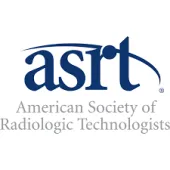
ASRT Category A
This program provides 40.75 hour(s) of Category A continuing education credit for radiologic technologists approved by ASRT and recognized by the ARRT® and various licensure states. Category A credit is also recognized for CE credit in Canada. You must attend the entire program to receive your certificate of completion.
This 40.75 credit activity provides the 16 hours of structured education related to the content specifications outlined by the ARRT®, required for certification and registration.Location
Course location and hotels
| Milwaukee, WI- March 23-27, 2026 | |
Course Location MTMI International Headquarters | Accommodations: SpringHill Suites Milwaukee West Reservations click here Hotel Amenities: Airport Transportation: Springhill Suites does not provide airport |
| Milwaukee, WI- June 08-12, 2026 | |
Course Location MTMI International Headquarters | Accommodations: SpringHill Suites Milwaukee West Reservations click here Hotel Amenities: Airport Transportation: Springhill Suites does not provide airport |
| Milwaukee, WI- September 21-25, 2026 | |
Course Location MTMI International Headquarters | Accommodations: SpringHill Suites Milwaukee West Reservations click here Hotel Amenities: Airport Transportation: Springhill Suites does not provide airport |
Tuition

| Audience | Price | Early Price | Member Price | Member Early Price |
|---|---|---|---|---|
| In-Person or Live Webinar CT Course | $1,715.00 | $1,615.00 | $1,689.00 | $1,589.00 |
| Online Self-Paced CT Course | $1,715.00 | $1,689.00 |
Partial refunds may be available for ONLINE SELF-PACED purchases if Reach 360 registration has not been completed.
Early Pricing Guidelines
To qualify for Early registration rates, you must register at least 21 days before the program date.
